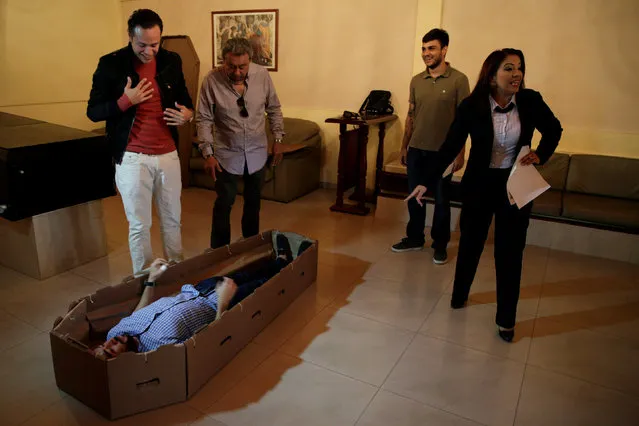
Elio Angulo (bottom L) lies inside a cardboard coffin next to Alejandro Blanchard (2nd L) as they introduce their product to potential customers at a mortuary in Valencia, in the state of Carabobo, Venezuela August 25, 2016. When Venezuelan entrepreneurs Alejandro Blanchard and Elio Angulo decided to create cardboard coffins, they were looking for an ecological selling point to compete against classic wood and brass caskets. Three years on, with the oil-rich country mired in deep economic crisis, their “bio-coffins” are becoming a viable option because of high prices for wooden coffins and shortages of brass ones. Blanchard and Angulo are offering their product in funeral homes in Venezuela, home to one of the world's highest murder rates, and business is looking promising. Biodegradable coffins are in vogue in Europe and the United States, but they are also finding a niche in Venezuela in the face of shortages, triple-digit annual inflation and a deep recession. A wooden coffin in Venezuela can cost 280,000 bolivars, equivalent to about a year of earnings at minimum wages and about four times that of a biodegradable coffin. Made of recycled corrugated fiberboard, the bio-coffin is light, can hold up to 230 kilos (500 pounds) and can be put together in less than 10 minutes. Three hundred bio-coffins can be made with the number of trees required to build a single wooden coffin and require about half the amount of fuel during cremation. Blanchard and Elio Angulo say they have received orders from Colombia, Ecuador and Peru. (Photo by Marco Bello/Reuters)
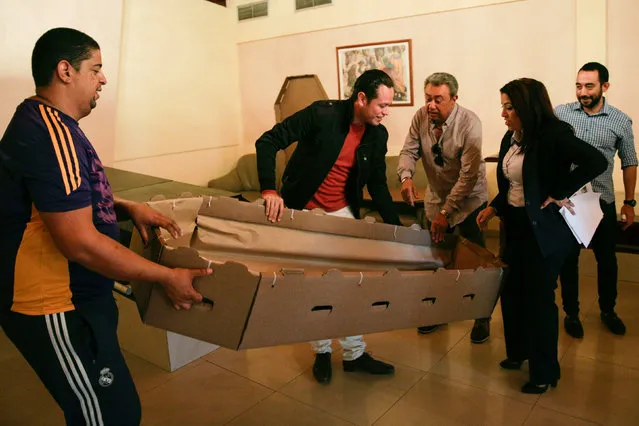
Alejandro Blanchard (C) introduces a cardboard coffin to potential customers at a mortuary in Valencia, in the state of Carabobo, Venezuela August 25, 2016. (Photo by Marco Bello/Reuters)
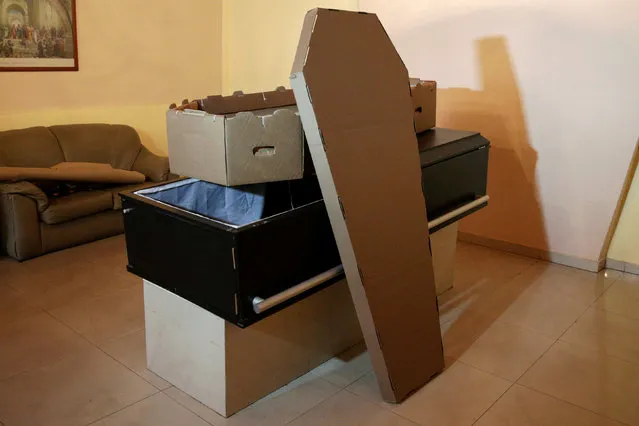
A cardboard coffin is seen at a mortuary in Valencia, in the state of Carabobo, Venezuela August 25, 2016. (Photo by Marco Bello/Reuters)
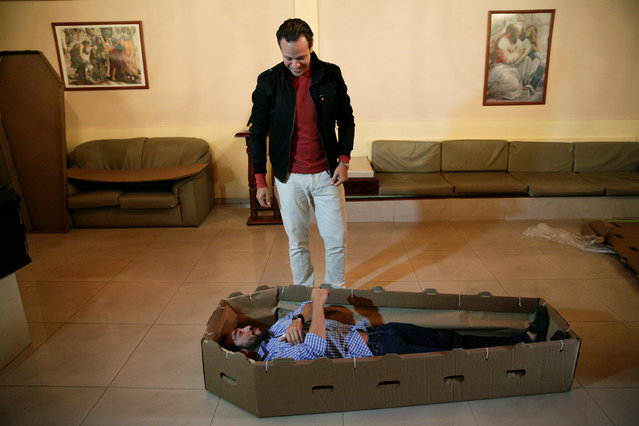
Elio Angulo (bottom C) lies inside a cardboard coffin next to Alejandro Blanchard as they introduce their product to potential customers at a mortuary in Valencia, in the state of Carabobo, Venezuela August 25, 2016. (Photo by Marco Bello/Reuters)
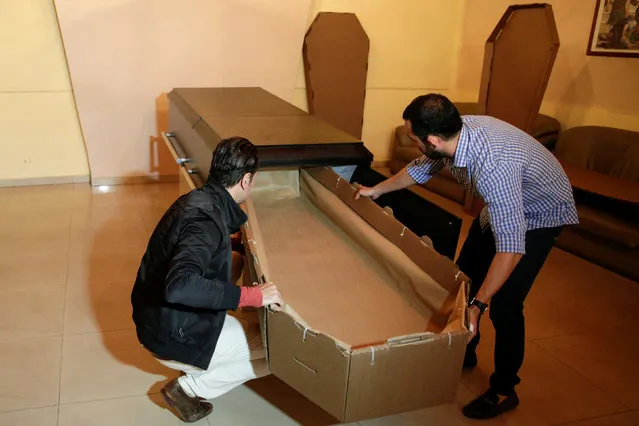
Elio Angulo (R) and Alejandro Blanchard put a cardboard coffin inside a crate at a mortuary in Valencia, in the state of Carabobo, Venezuela August 25, 2016. (Photo by Marco Bello/Reuters)
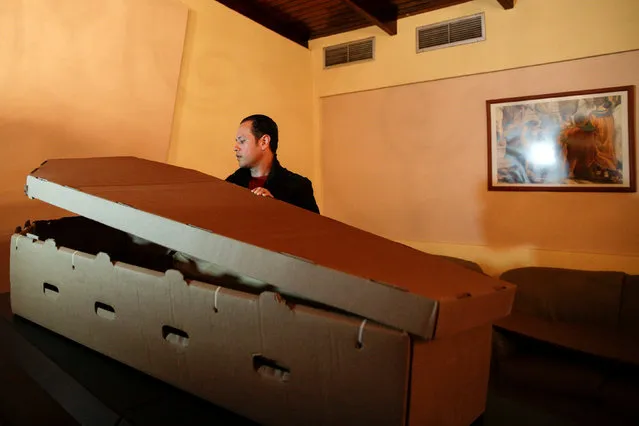
Alejandro Blanchard assembles a cardboard coffin at a mortuary in Valencia, in the state of Carabobo, Venezuela August 25, 2016. (Photo by Marco Bello/Reuters)
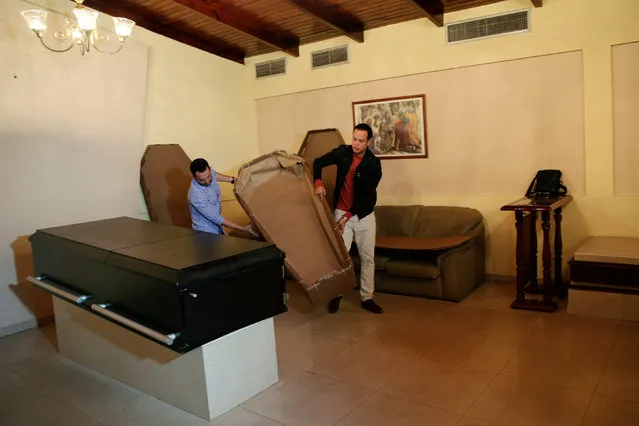
Elio Angulo (L) and Alejandro Blanchard carry a cardboard coffin at a mortuary in Valencia, in the state of Carabobo, Venezuela August 25, 2016. (Photo by Marco Bello/Reuters)
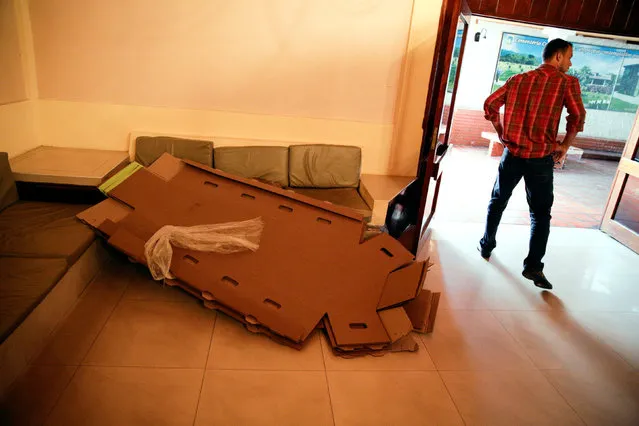
An unassembled cardboard coffin is seen at a mortuary in Valencia, in the state of Carabobo, Venezuela August 25, 2016. (Photo by Marco Bello/Reuters)
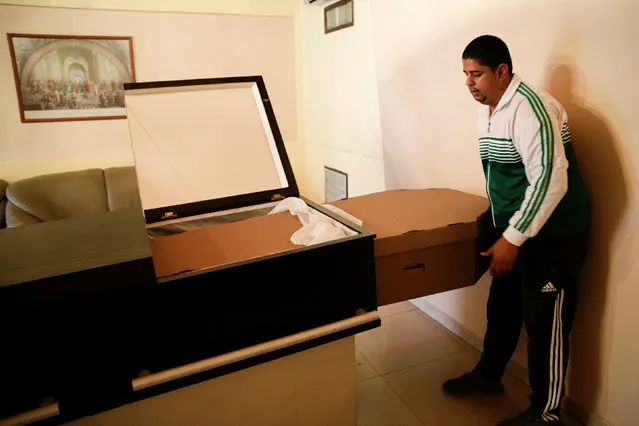
A man puts a cardboard coffin inside a crate at a mortuary in Valencia, in the state of Carabobo, Venezuela August 25, 2016. (Photo by Marco Bello/Reuters)
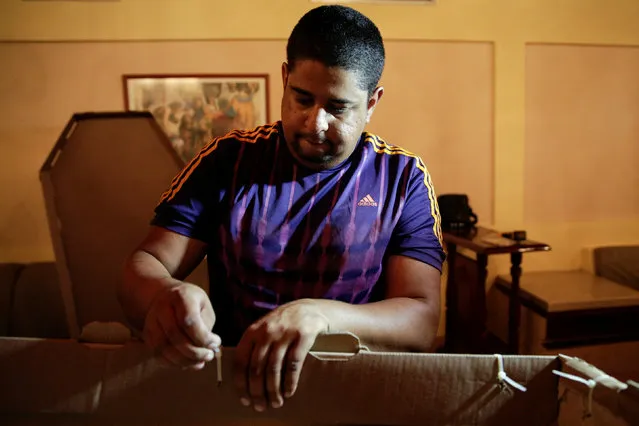
A man assembles a cardboard coffin at a mortuary in Valencia, in the state of Carabobo, Venezuela August 25, 2016. (Photo by Marco Bello/Reuters)
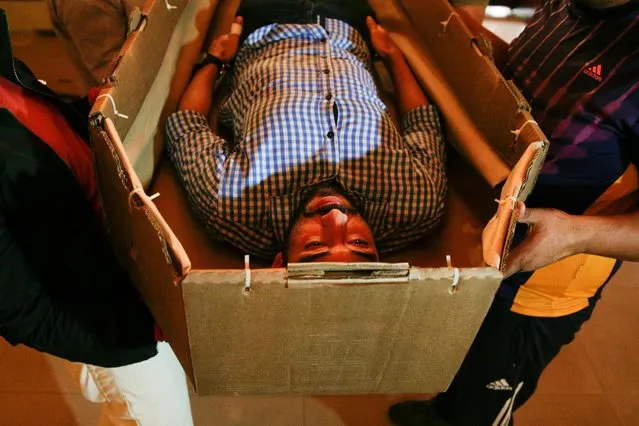
Elio Angulo lies inside a cardboard coffin as he introduces his product to potential customers at a mortuary in Valencia, in the state of Carabobo, Venezuela August 25, 2016. (Photo by Marco Bello/Reuters)
27 Aug 2016 11:18:00,
post received
0 comments
